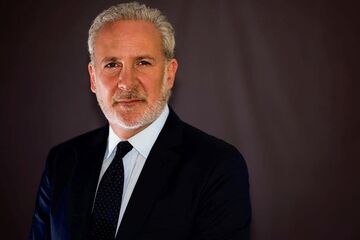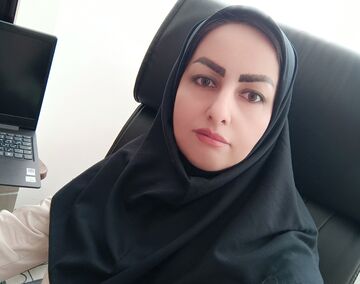Tehran(Bazaar): Behavioral science is playing an increasing role in public policy, and it is raising new questions about fundamental issues - the role of government, freedom of choice, paternalism, and human welfare. In diverse nations, public officials are using behavioral findings to combat serious problems - poverty, air pollution, highway safety, COVID-19, discrimination, employment, climate change, and occupational health, Cass R. Sunstein writes in his recent book under the title of "Behavioral Science and Public Policy (Elements in Public Economics)".
The next decade will undoubtedly be the most important, and the most productive, for the use of behavioral science in public policy and I am very optimistic that we will be able to make a great deal of progress in solving the world's major challenges, professor Sunstein tells Bazaar in an exclusive interview.
Cass Robert Sunstein FBA (born September 21, 1954) is an American legal scholar, particularly in the fields of constitutional law, administrative law, environmental law, and law and behavioral economics. He is also The New York Times best-selling author of The World According to Star Wars (2016) and Nudge (2008). He was the Administrator of the White House Office of Information and Regulatory Affairs in the Obama administration from 2009 to 2012.
Following is the text of the interview:
Bazaar: What is your main question in your recent book, “Behavioral Science and Public Policy (Elements in Public Economics)”?
Sunstein: The main question is: What is behavioral science and how can it help people all over the world? The basic answer is that behavior science helps us to understand why and how people make decisions -- about where to go, what to eat, what to do, how to drive, how to avoid illness and death.
For example, many of us focus on the short-term, not the long-term. We might care about today, but not next year. And many of us respond to "social norms"; if, for example, it is normal to wear a mask during a pandemic, people who are not sure whether to wear a mask will be more likely to do that.
Bazaar: What is your main hypothesis in this book?
Sunstein: My main hypothesis is that behavioral sciences can help us solve many problems. For example, it can reduce road accidents, help combat COVID-19, promote economic growth, and improve education.
Bazaar: You emphasize the subject of behavioral sciences in your work. Why is this important and why does the application of behavioral sciences help solve social, economic and security problems quickly?
Sunstein: In the last forty years, we have seen so much progress in behavioral sciences. All over the world, we are learning how people make decisions. For example, people often choose the easiest course; if it is hard and complicated to do something, people might not do it at all.
Sometimes people procrastinate. They put off important tasks until another day. In many nations all over the world, people are using behavioral sciences to promote social goals. Many government officials, in diverse nations, are doing exactly that We have seen some major progress in reducing accidents on roads, in reducing poverty, and in reducing air pollution, in part with behavioral science.
Bazaar: How does the behavioral sciences help get out of the corona crisis, and what implications can it make to help the economic situation caused by the spread of the virus?
Sunstein: I am now the chair of a technical advisory group at the World Health Organization, and this is one of our topics. The pandemic is in large part a problem of behavior - whether people engage in social distancing, whether they wear masks, whether they wash their hands, whether they take precautions, whether they do not take precautions. In 2021, a major issue will be whether people get vaccinated.
Some countries have already made progress with the pandemic in part because they have used behavioral sciences to make the healthy choice the easy choice, and worked hard to use new and better social norms to promote behavior that is saving and will save lives. My new book has some discussion of that.
The next decade will undoubtedly be the most important, and the most productive, for the use of behavioral science in public policy. I am very optimistic that we will be able to make a great deal of progress in solving the world's major challenges.
Interview by Tahmineh Ghamkhar















نظر شما